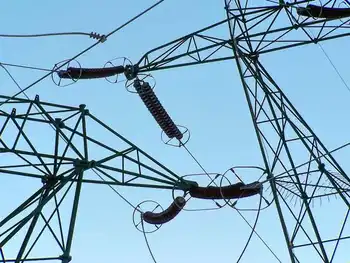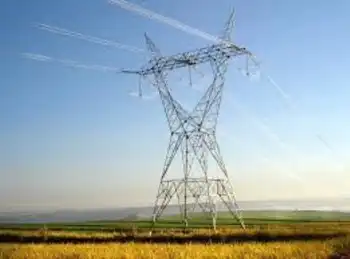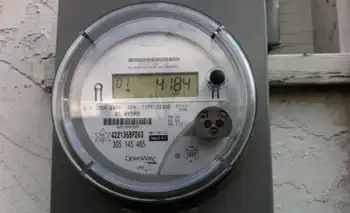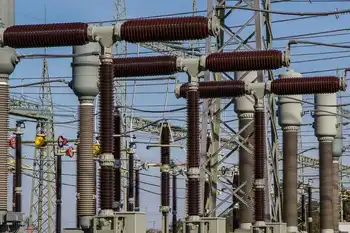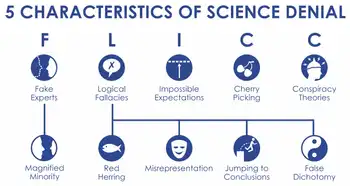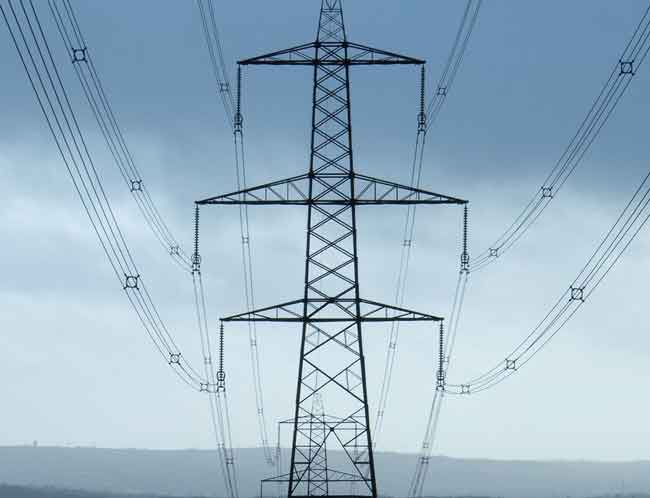Energy Bill Aids Expansion of Atomic Power
By New York Times
Substation Relay Protection Training
Our customized live online or in‑person group training can be delivered to your staff at your location.

- Live Online
- 12 hours Instructor-led
- Group Training Available
Lobbyists have told lawmakers and administration officials in recent weeks that the nuclear industry needs as much as $50 billion in loan guarantees over the next two years to finance a major expansion.
The biggest champion of the loan guarantees is Senator Pete V. Domenici of New Mexico, the ranking Republican on the Senate Energy Committee and one of the nuclear industryÂ’s strongest supporters in Congress.
Senator Jeff Bingaman, Democrat of New Mexico and the energy billÂ’s author, has long argued that nuclear power plants do not need federal loan guarantees. Mr. Bingaman said that the industry was over-interpreting the provision and that it would provide loan guarantees for only the most innovative power plants.
But the provision has the potential to considerably expand the nuclear industry, which plans to build 28 new reactors at an estimated cost of about $4 billion to $5 billion apiece. And while the nuclear industry would be the biggest beneficiary, the provision could also set the stage for billions of dollars in loan guarantees for power plants that use “clean coal” technology and renewable fuels.
The nuclear industry is enjoying growing political support after decades of opposition from environmental groups and others concerned about the risks. An increasing number of lawmakers in both parties, worried about global warming and dependence on foreign oil, support some expansion of nuclear power.
But the provision could go much further than many lawmakers had in mind by giving the Department of Energy the power to approve an unlimited amount of loan guarantees for “clean” power generation. Under legislation enacted in 2005, nuclear power qualifies as a clean technology because it does not emit carbon gases that contribute to global warming.
Power companies have tentative plans to put the 28 new reactors at 19 sites around the country. Industry executives insist that banks and Wall Street will not provide the money needed to build new reactors unless the loans are guaranteed in their entirety by the federal government.
The federal government guarantees many billions of loans each year to help farmers, exporters, small businesses and students. The government does not actually lend the money but agrees to pay it back in case the borrower defaults.
While the nuclear industry says it will need $25 billion in loan guarantees in 2008 and $50 billion over the next two years, President Bush had proposed a far smaller amount — $4 billion — in new loan guarantees next year for “clean” electric power technologies, which include plants that run on so-called clean coal technologies and renewable fuels.
Many experts fear that the proposed subsidies could leave taxpayers responsible for billions of dollars in soured loans.
“Such projects, by their nature, pose significant technical and market risks,” the nonpartisan Congressional Budget Office warned in an analysis of the provision. “Studies of the accuracy of cost estimates for pioneering technologies have found that estimates are consistently low.”
Michael J. Wallace, the co-chief executive of UniStar Nuclear, a partnership seeking to build nuclear reactors, and executive vice president of Constellation Energy, said: “Without loan guarantees we will not build nuclear power plants.”
The little-noticed provision in the Senate bill subtly refines and expands the loan guarantee program that Congress passed in the Energy Policy Act of 2005.
As before, the Department of Energy would be allowed to guarantee 100 percent of the loans and up to 80 percent of the total cost to build a reactor.
But the bill essentially allows the department to approve as many loan guarantees as it wants for both new reactors and plants that use other “clean” technologies.
That is a big change. Under current law, the government is only allowed to guarantee a volume of loans authorized each year by Congress. Last year, Congress limited the government to awarding just $4 billion in loan guarantees for clean energy projects during the 2007 fiscal year.
Mr. Domenici, who has been pushing the Energy Department to move much more aggressively in approving loan guarantees, has argued that there is no need for limits on the loan volume because power companies will be required to pay an upfront fee to cover the estimated cost of the guarantee. In essence, the “credit subsidy” payments would be used as a kind of insurance premium that could be used to cover the cost of any defaulted loan.
“It is very clear that this is a self-financing program,” Mr. Domenici told James Nussle, Mr. Bush’s nominee to become the White House budget director, at Mr. Nussle’s recent confirmation hearing. “There should already be $25 billion to $30 billion in the loan guarantee fund.”
But the Bush administration opposes the measure, fearing that it could prove extremely costly.
The provision would “remove appropriate controls over the size of the program and increase taxpayer liability,” the Office of Management and Budget wrote in an official position statement on the energy bill.
Michele Boyd, legislative director of the consumer advocacy group Public Citizen, said the measure would subsidize plants with conventional technology.
“None of these so-called ‘advanced’ nuclear reactors deal with the fundamental flaws of nuclear power, such as dangerous radioactive waste, vulnerabilities to air attack and excessive cost,” said Ms. Boyd, whose staff began investigating the provision shortly after the Senate passed the bill in July.
Mr. Bingaman, the billÂ’s primary architect, said that he was aware of the provision but believed that it would apply only to reactors with fundamentally new technology.
“I would be amazed if this generic loan program applied to most of the plants that are being proposed, either for the nuclear industry or coal industry,” Mr. Bingaman said. “The idea of this is not just to help an industry build plants. It’s to demonstrate new technology that meets the nation’s energy needs.”
But industry officials say the measure would directly affect the reactors on the drawing board.
“I think we can say that with all the projects moving forward on the schedule they are now on, that there could be a need for $20 to $25 billion in loan guarantees,” said Richard Myers, vice president for policy development at the Nuclear Energy Institute, a trade association.
The House is hoping to pass its own energy bill. But leading House Democrats have made it clear they oppose any kind of loan guarantees for nuclear reactors.
The House recently passed an appropriations bill for energy and water programs that included $7 billion in loan guarantees for projects involving renewable energy and specifically excluded nuclear plants.
Representative Peter J. Visclosky, Democrat of Indiana and chairman of the House Appropriations Committee’s panel on energy and water, said in July that the nuclear industry had estimated a need of $25 billion in guaranteed loans for next year and “more than that” in 2009. The industry’s request, Mr. Visclosky warned, “overwhelms” what the committee had been willing to offer the entire energy industry.
Still, nuclear industry executives say they hope the SenateÂ’s loan guarantee provision will be adopted by House lawmakers.





